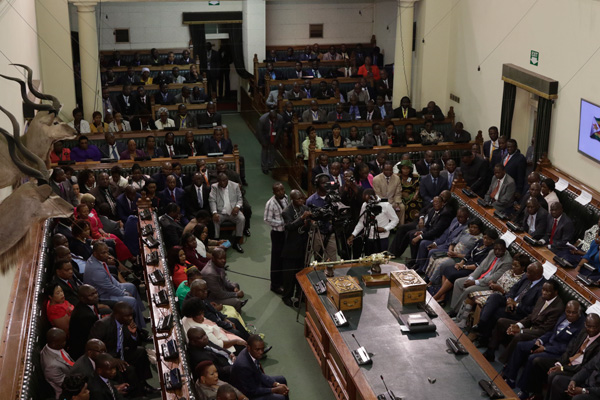
THE Parliamentary Portfolio Committee on Media has expressed concern over the high licence application fees charged on prospective broadcasters wishing to set up radio stations in the country.
By KHANYILE MLOTSHWA
Committee chairperson, William Dewa told journalists attending World Radio Day commemorations in Bulawayo on Monday that the exorbitant fees were unsustainable.
“We will continue to talk to the government to review the (application) fees so as to allow other players to come in,” he said.
Dewa said the Constitution compels government to open up the airwaves and allow private players to operate and own radio stations.
“Before the new Constitution, the government was not obliged to ensure that there are as many players in broadcasting as possible, but, after (adoption of) the new Constitution, it is now an obligation on the part of the government to free the airwaves.”
Speaking at the same event, Skyz Metro chief executive officer, Qhubani Moyo, said the broadcasting industry was the most expensive sector in the country.
“Raising capital for a radio project is not a walk in the park. Just to submit a licence application you pay $2 500, and if your application is accepted and you are called for public hearings, you pay $7 500. If you get the licence, they (Broadcasting Authority of Zimbabwe) want $50 000. We had to pay $100 000 for our two licences.”
- Chamisa under fire over US$120K donation
- Mavhunga puts DeMbare into Chibuku quarterfinals
- Pension funds bet on Cabora Bassa oilfields
- Councils defy govt fire tender directive
Keep Reading
Moyo said his radio station’s core business was to tell the Matabeleland story.
“The Matabeleland story is a story of a desire by the people of this region to have an equal share in terms of national development. It is a story of recognition and promotion of talent from this region. It is a story of a people who are saying, we are Zimbabweans too.”
National University of Science and Technology lecturer, Nqobizitha Dube, said: “When you are able to tell your own story, you are able to create your own role models. We have a problem in this part of the world, where because we have suffered extreme colonisation, we tend to feel inferior to other people.”











